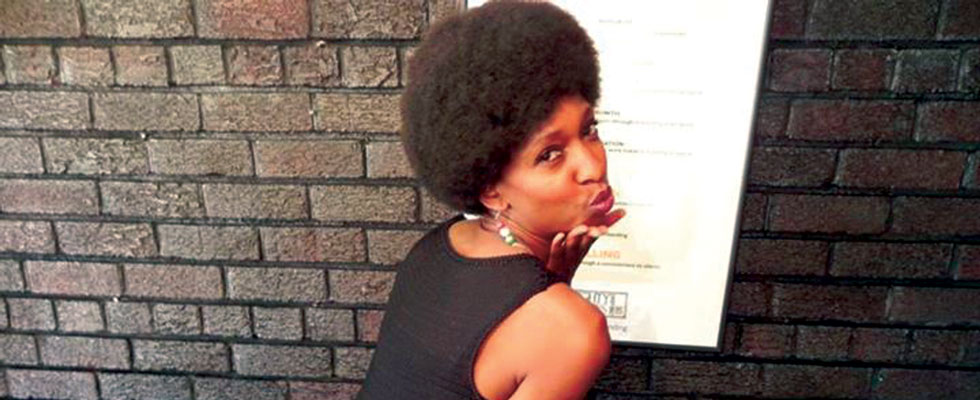
MARCH is the month of all things yellow. Yellow is the colour of the ribbon symbolising endometriosis awareness.
My name is Tinopona Katsande, aka Tintin, and I have the medical condition called endometriosis.
Endometriosis is a gynecological condition in which cells from the lining of the uterus appear and flourish outside the uterine cavity.
This means that every time I go on my period, I bleed from both inside and outside my uterus.
Now because it’s not normal to have menstrual blood come out of anywhere else but through the vaginal canal, the blood that collects outside the uterine cavity creates cysts all over my other organs causing excruciating pain and discomfort every time I ovulate. Not nice at all!
Now, there are many who will be annoyed by my disclosure of this condition largely due to a cultural reservation, but I have come to realise that many a girl child in Zimbabwe is suffering in silence and confusion and that is a blatant injustice to all women.
My aim through these articles is to create awareness of this condition particularly to teens and young female adults.
Together, we will attempt to debunk many a misguided notion about endometriosis often referred to as jeko or isilumo.
- Chamisa under fire over US$120K donation
- Mavhunga puts DeMbare into Chibuku quarterfinals
- Pension funds bet on Cabora Bassa oilfields
- Councils defy govt fire tender directive
Keep Reading
For the first time, Zimbabwe is joining the rest of the world in participating in Endometriosis Awareness Month throughout this month of March.
In Zimbabwe the EndoZim group will host dialogues around universities across the country, engaging specialists in the field, in a bid to share knowledge.
We launch the Endometriosis support group in Harare and round up with a family Zumba flash mob as exercise and an appropriate diet is one sure way to control the symptoms.
I was diagnosed with endometriosis when I was 17 back in 1997.
Between the ages of 13 to 17, I received seven operations on my uterus and ovaries before the actual problem was discovered.
My father then took me to California, United States, in search of treatment.
Now the reason why it took my gynecologist here so long to diagnose it is because endometriosis was for the longest time considered to be a “white woman’s disease” as very few black women were yet documented to have the condition.
It was no surprise then that endometriosis was not the first thing to come to mind when I vaguely explained my symptoms to my doctor and scans revealed cysts across certain areas in my abdominal area.
Back at home, the “elders” attributed the excruciating, demobilising monthly period pains to jeko and I was told I would eventually grow out of it, especially after having a baby.
Unfortunately, however, I am now 35, I haven’t grown out of it and medically I am now infertile.
I hasten to say, however, that with the ever-advancing treatments being availed and with my unwavering faith, I look forward to having my bundle of joy soon.
There is no cure yet for endometriosis, but it can be treated in a variety of ways, including pain medication, hormonal treatments, and surgery, which we will expound on in future articles.
I took every traditional herb known for “jeko” and then moved onto Lupron hormonal treatment in my early 20s, but it began to affect my bones so I had to stop using it.
At 35, I have now resorted to high dosages of pain medication every time I ovulate.
It provides temporal relief, but relief nonetheless.
I know I am not alone in the struggle with this condition, and I hope that by the time we are done with this inaugural campaign, we would have empowered each other to understand the condition better and encourage people to get an early diagnosis.
In the next article, we discuss specifically “endometriosis and teens”.
Please kindly buy a R2 yellow ribbon from participating vendors across the country. All proceeds go to the EndoZim support group.
NewsDay has partnered Tinopona Katsande and EndoZim in the endometriosis awareness month.
Email: [email protected], Twitter : @endozim











